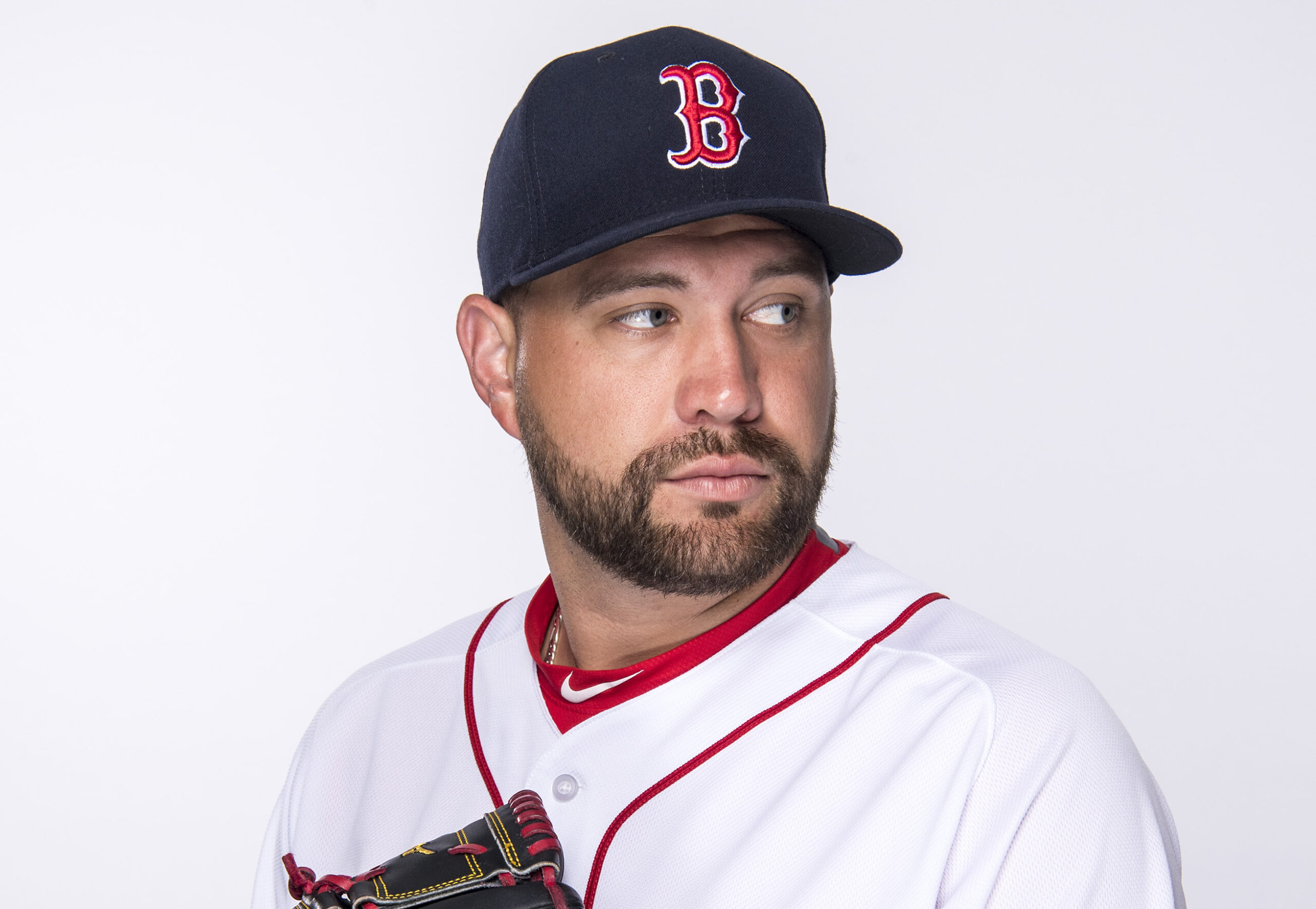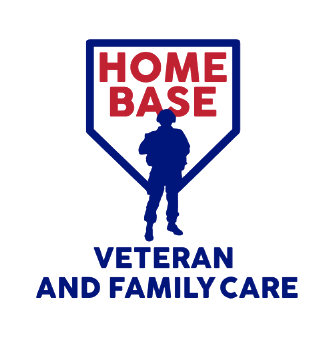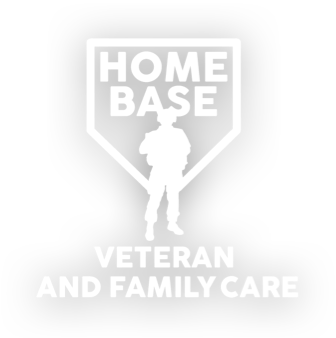#RedSoxFundFridayFeature: Boston Red Sox Pitcher Brian Johnson
If you’ve ever experienced the crippling feeling of anxiety, you know it’s not easy to put into words. This week, Red Sox pitcher Brian Johnson joins Home Base’s Dr. Patrick Downes to talk about his journey with anxiety – a battle 40 million American adults live with every day.
Now, he’s encouraging others to seek help and offers some coping skills and strategies that have helped him get in the right mindset to perform as a professional athlete – and off the field during the COVID-19 pandemic.
Brian, thanks so much for joining us today. We’re really grateful for your time. If we were at Fenway right now, what entrance song would you want us to play for you?
Thanks for inviting me here. I think I’m going to switch it up for you. These past two years, I’ve been using I Won’t Back Down from Tom Petty because he went to Florida and I went to Florida. So might switch it up this year. I haven’t really put too much thought into it, but right now I’d probably stick with Tom Petty.
That’s a good one. All right, we’ll see if we can get that track going for the entrance. You’ve been very public and open about how a physical injury to your hand started to lead to some self-doubt for you and then started to snowball into anxiety. And I’ve wondered about what gave you the motivation and the courage to begin to seek out treatment and acknowledge that this was something that was bothering you?
When I first kind of talked about it, it came out by accident on the phone with my dad and I just wasn’t in a good spot. I don’t know if I was pitching that day or the next day and I wasn’t doing too well, but I hadn’t really told anybody I was hurting. And so I kind of just kind of led into it with my dad. And my dad, being a father who coached me when I was young and throughout my career, he was trying to coach me on some things I could work on that worked in my earlier in my career. And that was kind of the last thing I wanted to hear because I had so many voices trying to help me at that point in time. And I kind of just said, “Dad, I kind of need you to just be my dad right now.” I didn’t need the coach at that point in time.
And he didn’t really understand what was going on. And I kind of just broke down. I remember I was on the way to the field to Pawtucket when I kind of just broke down. I pulled into a parking lot at Whole Foods and just kind of broke down and just said “I wasn’t happy. I don’t know if I want to do this anymore. I can’t compete at the level that I know I’m capable of”. After that conversation, I reached out to our team mental skills coach, Laz Gutierrez. And our team doctor, our mental skills doctor, Richard Ginsburg. And without those two, I probably wouldn’t have been able to get back to where I needed to be in the sense of just the capability of understanding that this is normal. This is a normal thing that people feel. And yeah, after talking to them for many hours face to face and over the phone and getting a game plan together, it kind of just slowly but surely worked it’s way back to where I felt comfortable again.
That speaks to how important it is to have such a strong support system around us that in that time of despair, you knew you had your father to reach out to, you knew you had people at the Sox to reach out to, to say, “Hey, I’m struggling with this. Can you help me understand it?” Sounded like they also helped normalize it for you and say, “Hey, we can help you. There’s some hope here.”
Yeah, 100%. And for me, I was kind of embarrassed at times because I was worried that my teammates, my coaches, and the Red Sox weren’t going to trust me again. It was kind of going to be one of those things where they’d be like, “Okay, we’ll help you.” But then it’s kind of like, “Hey, we need to get this guy out of here because how is he going to perform the level of Boston? It’s not anybody, it’s the Boston Red Sox and we need you to perform.” But I was totally wrong. And I think over time, I think I’ve realized that I think you can play things out in your head and make them seem much worse than they really are. And don’t believe all the thoughts you think. So, for me, it was huge.
And that’s such an important point. We do that all the time in therapy is to help people realize when their thoughts can be really negative and undermine their wellbeing, undermine their confidence in themselves. That can really snowball into that doubt. And it sounds like you were able to recognize that and then almost turn it into a strength, realizing that that was true for you then allowed you to tune into it and then do something about it.
Yeah. And it’s not easy. I would say for many people, it’s not one of those things where it’s just like, okay, you don’t worry about it, you don’t believe it anymore. Like, “Eh, you’re good. You’re good.” It’s not how it works. I mean, it was to the point wherein the start, it was is my elbow going to bother me? In what inning? What pitch? In the bullpen? Am I going to be able to get anybody out today? It just kind of, it just snowballs into this huge ordeal and I hadn’t even gotten to the field yet. So I mean, it was miserable.
So what’d you do about that? What kind of coping skills or strategies did you start to implement to either stop that process or pivot it or help you get in the right mindset to perform?
I’ve always been big on working hard and trying to do the best I can off the field in the sense of, or on the field, of sense, but prepping for game day. Working hard and trusting in the process that I did all the stuff that I could do before. What’s going to happen is what’s going to happen. Once that ball leaves your hand, it’s out of your control. And just kind of having fun again and really getting a good night’s sleep was big for me and breathing. Whenever I felt that moment kind of getting a little bit too big for me, just take a couple of deep breaths and just kind of realize, “Hey, this is just a game, and let’s go have some fun.”
So some of that basic self care like getting good sleep and breathing, but also realizing if you’re getting caught up in the moment, slow it down for a second. Say, “Hey man, I’ve prepped for this my whole life. I’ve prepped all offseason. I’ve prepped all the couple hours before this game to get myself in the right space. I’m here for a reason, but I also can’t predict the future. So I’m going to give it my best, but I also can’t control what comes next.”
Exactly. I mean, it’s basically normalizing it. It’s like I studied for this test, I’ve put all the work in and I’ve read the scouting reports, I’ve done all that. And now if the teacher puts a different test out there or something and you studied, hey, let’s just go with the flow and see if I can figure this out. And it’s the same thing with the scouting report. If I study a scouting report and it says, “This guy is going to do this, this, and this.” And all of a sudden, I start doing that and he’s not showing me that what I’m doing is right, it’s like, “Hey, I got to make an adjustment.” And that’s where it was like before. For me, it was kind of like, “Whoa, what do I do here?” Now I’ve really learned that just take a deep breath, just go this way, go that way. But leading up to that, it was all my elbow. When I’m healthy, it’s easy to do that. Well, when you’re hurting, you don’t feel the capability of you’re like, “Oh my God, this guy can’t hit a curveball.” But it hurts to throw a curveball. So what am I going to do? And that’s where it kind of speed for me during new games.
In doing all this work on yourself and through therapy, through mental preps before games, what kind of bigger life lessons did you learn about yourself in terms of your strength, your wisdom to not only handle those uncertain life moments but also bigger uncertainties in life?
I know this sounds kind of cliche, but the sun’s going to come tomorrow. I mean, one bad game, one bad pitch doesn’t define who I am as a person or even a player. I think over a long haul, it shows. Just kind of doing the right things and that just kind of even outside, just outside of life. Calling a friend to see how he’s doing or even during times like this, my friend owns a bar and he’s shut down and he needs help. Hey, I just call and say, “Hey, do you need any help?” Like, “Hey, it looks like it’s going to turn soon.” And you just try to keep people up and they might be hurting right now. People want to be strong and they want to seem confident. Just because you’re struggling doesn’t mean you’re not strong or confident, it just means you’re human.
I’ve noticed in my work with people during this pandemic that if they’ve done work as you have, they are better equipped to kind of sit in this uncertainty right now and have that perspective to say, “We don’t really know exactly what’s going to happen here. There are some things that are out of our control, but there are some things that are in our control that we can still do right now to take care of ourselves. And it sounds like you’ve really developed that wisdom from all the work you’ve done on yourself.
Yeah. Just trying to stay busy is what’s really helped me. Whether it’s taking the dog for a walk, going to throw the ball in the pool for them or going to the pool, or taking the boat out. Just not letting yourself be consumed with boredom, I think. Which is going to happen inevitably. We’ve had so much downtime. I mean, find a good TV show. Find something, I don’t know, whatever you enjoy. But I know that’s easy to say. But it’s tough. I mean, for me. In the beginning of all this when the season was like, “Okay, you’re going to go home for a week or two, and then we’ll pick back up.” It kind of caught me like texting people, “Hey, when should I go back? What about my apartment? It’s like, do I need to move out my stuff?”
So the first probably 10 days for me were stressful because I have half my stuff in Cocoa Beach and now I have half my stuff in Fort Myers. And then I have my other stuff here in Cocoa Beach and a little bit in Fort Myers that needs to go to Boston. So it’s like I have stuff all over the state. I’m like, “I kind of need to know what to do.” So, I mean, I’m not going to lie, the first couple of days, first two weeks, I was stressed out because I didn’t know what to do with my life because I was like, “I don’t know what to do with all my stuff.”
And was it those things that helped to ground you again, those kinds of daily tasks and the just doing good things for yourself, taking the dog out, spending some time by water, keeping yourself busy that helped you get through that?
Yeah. I would just go fishing or do something. And it was like, “Look, I hope my landlord’s not going to just throw my stuff out on the street. That’s just stuff in your head.” You start to play ball. Like, “What am I going to do with all my stuff?” It’s like, “Look, stuff will be fine. I’ll get it.” I ended up waking on a random Tuesday. I just woke up and I was like, “All right, I’m just going to drive to Fort Myers, get my stuff.” And it was like, “All right.” I got back later that night. And it was over with, it was over. We’re good. So it’s just like it snowballs.
In therapy, we can call it catastrophizing. All of a sudden, we go to this point of like, “Oh my God, this is going to be the worst-case scenario. I’m going to get evicted. I don’t know what’s going on with my professional life.” And we can easily get trapped in that place and paralyzed by it. But sounds like you really benefited from just saying, “Okay, what are a couple of things I can do for myself today and really stay present at the moment?”
Yeah. I mean, it’s easier said than done, as I said. But for me, it was just kind of I’m lucky to live on the water. So I just go fish, go do something, just try to stay busy as much as I can.
Is there anything about this time that you think you’re going to learn from and carry forward to playing as a baseball player?
Well, I would say not taking it for granted just because you can see how fast something could turn something around. But I kind of learned that when I had all my stuff because I feel like for me, I was moments away from just saying, “I’m done.” So I appreciate the game for what it is and what it has on my life. But I think some people will tell themselves, “Hey, this could be what it feels like to get released. Or this could be what it feels like to have to retire.” And I think it could be a little perspective for people to see this is what life could be after baseball. Obviously, it won’t be the stores shut down and stuff like that, but the boredom. And appreciate what you have for living in the moment.
I get that sense of appreciation from you from all the work you’ve done, all the insight you’ve gained. That really comes through. But what would you say is the one thing you really miss right now about what life was like before this pandemic? And what’s the one thing you’re most grateful for right now?
I would say the thing I miss the most is the gathering in a locker room and just talking to the guys and telling stories and hanging out. And then I miss the competitiveness. I miss waking up in the morning and having that. If I’m in the bullpen, am I going to pitch today? Kind of that fire in your stomach, that little butterflies feeling, competitive edge that every athlete or … I mean, I’ve had it. I would say everybody has probably something of it. But for somebody that competes for a living and does that, I miss that competitive edge and going to the field saying, “Are we going to win today? Let’s win.” Having that fire in your stomach.
And the thing I think I’ve learned and are grateful for this is I get to hang out with my dad and at the house. And I don’t get to see my mom and my brother and sister, but I have … At least I get to spend this time with my dad and get to catch up with him. So I think I’m grateful for that.
Well, I’m very grateful for your time, for you being so open about the ways in which you have grown as a result of confronting the anxiety that you felt and working through it, the kind of perspective you’ve gained, the appreciation you have for life. And really grateful for your time. Thank you so much.

If you or someone you know are feeling overpowering feelings of stress, worry, and panic commonly associated with anxiety, please reach out to us. At Home Base, our experts in psychiatry and psychology services use a team approach to support you through a care plan and offer support along the way.
Visit www.homebase.org/connect2care or call our clinic at 617-724-5202 to learn more about our services.


 Home Base
Home Base